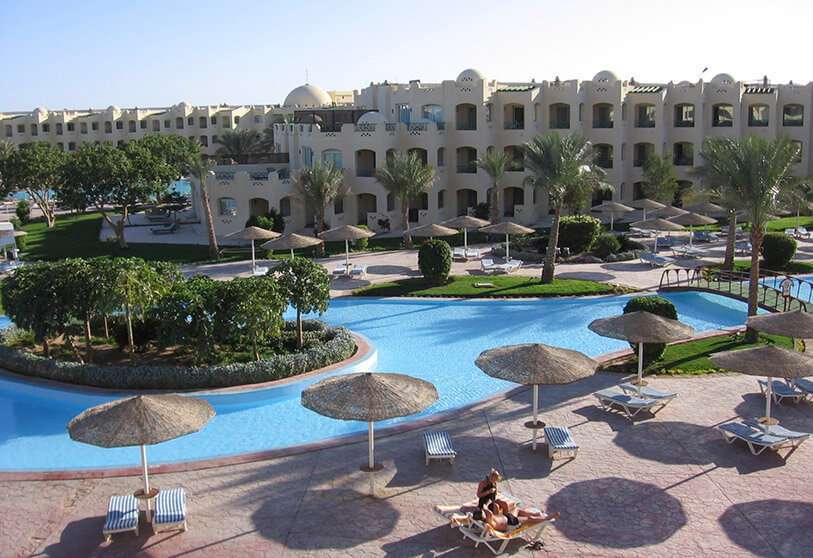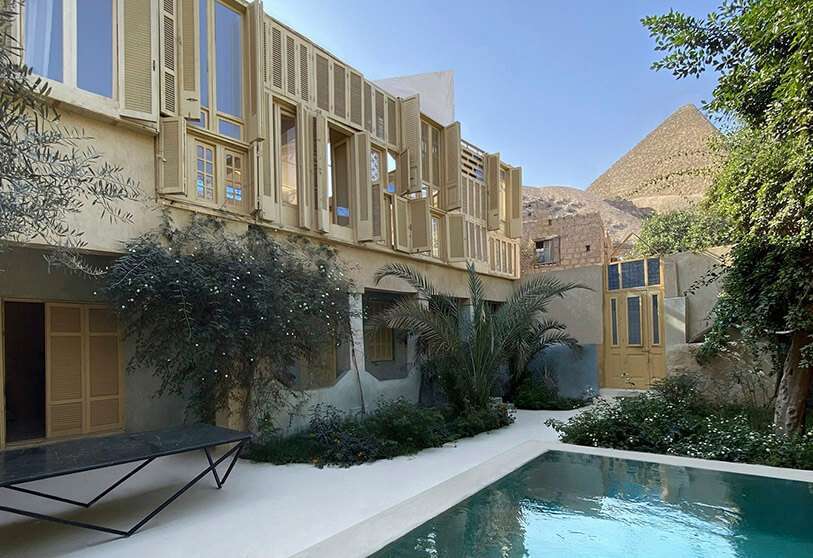The economic success of President Al-Sisi's Egyptian government leads to optimism for the future

hroughout history, Egypt has had to face numerous challenges, yet the country has always worked tirelessly to overcome each and every one of these challenges. Its geopolitical position has forced Egypt to respond to profound changes in the regional and international arena and to numerous crises, but it has also been one of the keys to its economic development.
This developing process has undoubtedly accelerated in recent years and, since 2011, long-term economic reform programs have been promoted, as a result of a new vision of economic development that seeks to carry out key structural reforms, necessary to address the main problems of the Egyptian economy: achieving macroeconomic stabilization, growth and employment recovery and debt reduction, while ensuring social protection for the most disadvantaged sectors.

Under President Al-Sisi, with the consensus and support of the Egyptian people, spending policies have been reformed so that public spending that was primarily focused on consumption has become productive spending that drives economic growth.
Thus, productive spending has been central to public spending and the latter has been resolutely directed towards investment to boost growth in all regions of the country, to strengthen the main sectors of the Egyptian economy and also to achieve sustained, sustainable and humane economic development.
Thus, a very important investment has been made in infrastructure, promoting new roads, bridges and railroads, building a new administrative capital, investing in the industrial and service sector, in the rehabilitation of farmland and the modernization of the agricultural sector, as well as in research and development projects, emphasizing the transformation to a new, more digital administration in which new technologies play a key role.

ll this is part of the reform plan initiated in 2017, endorsed by the World Bank and implemented in collaboration with the International Monetary Fund, to make Egypt a modern economy and a country capable of facing the many challenges, both domestic and international, with solvency.
The objective is not only economic growth but also the gradual improvement of the economic and social well-being of the citizens. The aim is to ensure that development is directed towards social justice and that the most disadvantaged groups are protected.
For this reason, the promotion of economic development has been accompanied by social policies for human and inclusive development, in education, health and access to decent housing for the most disadvantaged classes, with many projects for the construction of social housing and accommodation for families living in irregular settlements in very depressed areas.
The economic and social reforms have borne fruit, and the reports of the International Monetary Fund, the World Bank and the relevant agencies and institutions have highlighted the remarkable improvements in economic and social indicators since the beginning of the reform program, and have also underscored the remarkable improvement in the indicators where the greatest deficiencies were observed; in particular:
- The liberalization of the Egyptian pound exchange rate
- The rate of economic growth has accelerated.
- The public deficit has been significantly reduced, and public revenues have increased through the reform of the tax and expenditure control system.
- The external debt has also been reduced and foreign currency reserves have been increased.
- Inflation has dropped and is being contained.
Implemented social policies and the confidence of Egyptians in the government have ensured that this has not affected the internal stability of the country.

The new international coronavirus pandemic situation has undoubtedly affected the entire international community without exception, and has also posed a very significant challenge to the Egyptian economy, yet Egypt's management of the pandemic has been highly regarded internationally. According to the latest data, Egypt had 105,033 confirmed cases of coronavirus, and just over 6,000 deaths, with a population of over 100 million. In October it has a daily average of only 100 infected cases and 16 deaths, according to the Health Minister.
Egypt has achieved a balance between the adoption of the necessary health measures to face the pandemic, the continuation of economic activity, and economic development policies that have allocated a large part of their budget to improve the health and education sectors. Significant resources have also been allocated to support temporary workers and families most affected by this crisis, and this without relying on any external support but rather on their own resources.

Furthermore, in September 2020, in the midst of the international health crisis, the rating agency Moody's praised Egypt's credit capacity indicators, granting the country a B2 rating for stability, which depends on the country's capacity to face its debts, the reduction of its credit needs and the maintenance of its foreign currency reserves.
In addition, Goldman Sachs Investment Banking Group has recognized the ability of the Egyptian economy to withstand the effects of the pandemic and meet its responsibilities. It stressed that 50% of the indirect foreign investment leaving the country at the beginning of the crisis (some 10 billion dollars) has already been recovered, that inflationary economic expectations are positive and so is the strength of the Egyptian pound, and that an improvement in foreign currency income is expected despite the health crisis.
hus, tourism is also showing signs of a progressive and robust recovery: Wizz Air has announced the resumption of three weekly flights between Milan and Alexandria, KLM has resumed operations after three years without flying to Cairo, and flights have also resumed from Russia, Kazakhstan, etc. This shows that the strict implementation of health measures to deal with the pandemic makes Egypt a safe tourist destination.
It is worth mentioning the close friendly relationship between Spain and Egypt as Egypt appreciates Spanish tourism due to the fact that it has always opted for monumental tourism. Egyptair has again flown to Cairo from Madrid, and several Spanish tour operators will launch special flights from Madrid to Luxor as of November 2020, another special flight will depart from Pamplona directly to Luxor, and new bookings have also been reported as a result of positive news, including the opening of new museums in El Fustat (Coptic Quarter) and Sharm El Sheikh, the latest discoveries in Sakkara, the development of the Holy Family route, the opening of the Royal Palace in Abdeen by former King Farouk, not to mention that a new museum, the largest in the world, is to be opened outside Cairo in the coming months. From July 2020 to date, Egypt has received more than 400,000 tourists, all of whom have returned home safely.
Another example is the online Public Registry of Property, which includes the registration of both urban and rural properties, providing a solution to the problem of the uncontrolled expansion of construction in natural and agricultural areas following the uprising of 2011.
Spending policy is undoubtedly a fundamental tool in economic policy, so the Egyptian state has declared a goal of increasing public investment in 2020-2021 by 55% over the previous year, for a total of 280 billion Egyptian pounds (of which 225,000 come from the general state budget), 10% of which will go to water and sanitation projects.

It is necessary to emphasize again the importance of infrastructure investment, particularly in the very important public works projects undertaken, since the construction sector has become the main engine for the Egyptian economy's growth during the COVID-19 health crisis.
Thus, investing in public work projects has allowed the Egyptian economy to grow by 3. 5% in 2019-2020 - and despite the increasing number of private sector layoffs due to the pandemic, the unemployment rate in the country could be contained, as it has only slightly increased during the second quarter of 2020 (thus the unemployment rate rose very slightly, from 9.6% to 7, 7% in the first quarter, and increased by only 2.1% over the same period last year), and public spending on infrastructure has largely stimulated growth in various sectors of the economy and has largely offset the negative economic effects of the pandemic.










